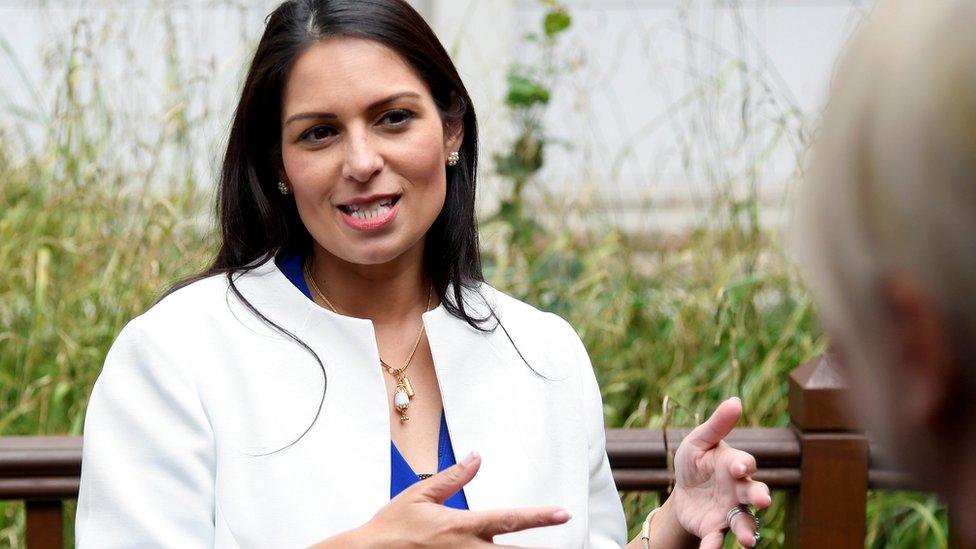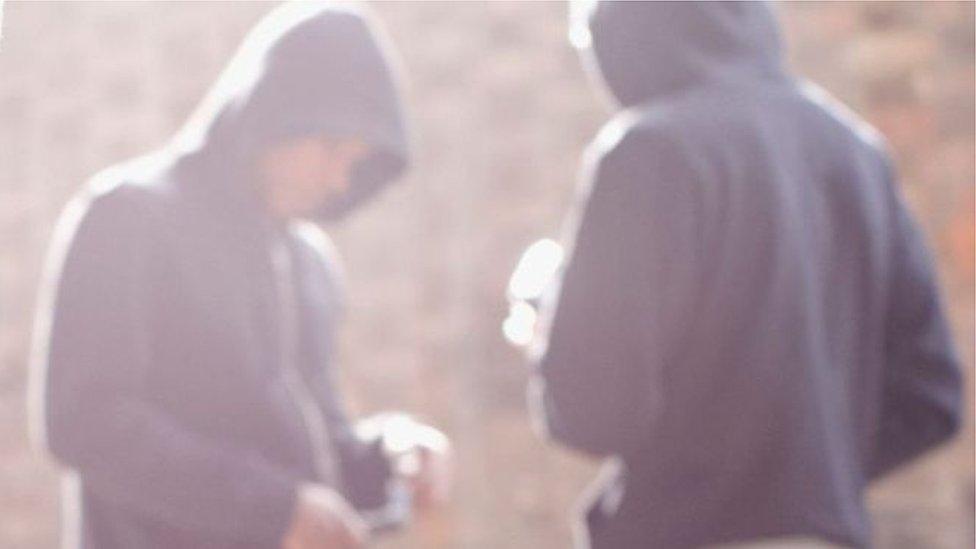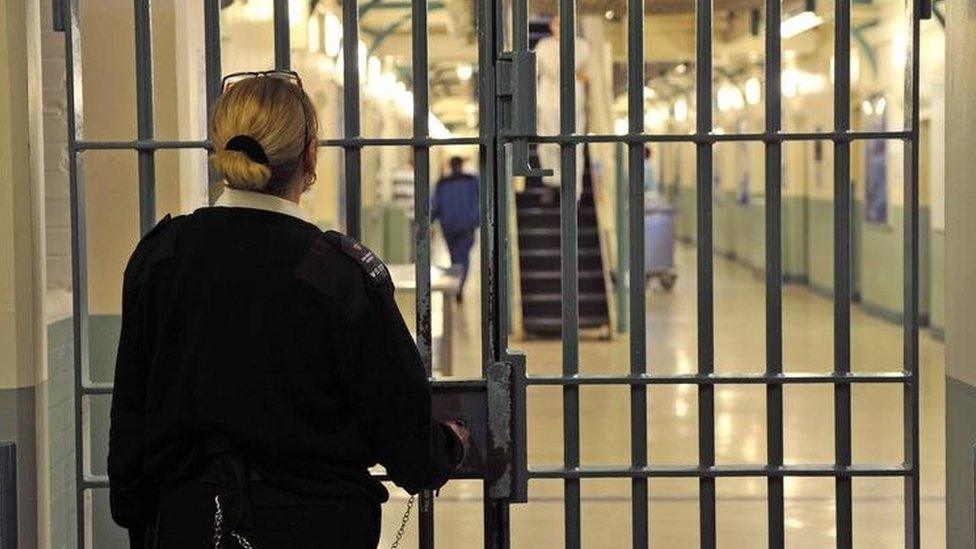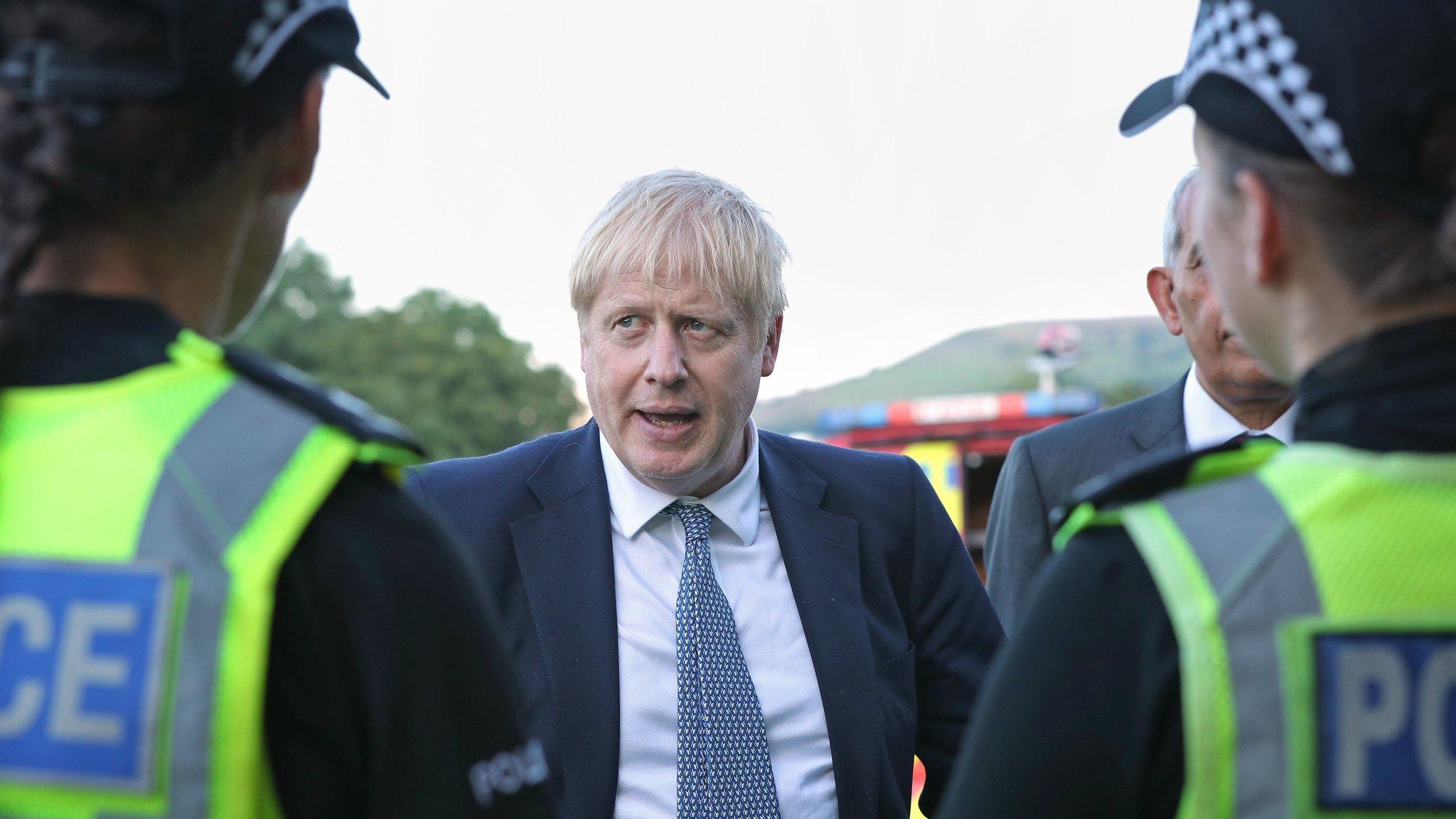Priti Patel pledges police unit to tackle county lines
- Published
Home Secretary Priti Patel: "The kingpins of these criminal gangs are exploiting children"
The home secretary has announced a new team within the British Transport Police to tackle county lines gangs.
The criminal networks deliberately target children and vulnerable adults to courier drugs from cities to users across the country.
Priti Patel said the government would invest £20m into identifying and dismantling the gangs.
She was speaking at the Conservative Party conference in Manchester on a day focused on law and order.
Earlier, Justice Secretary Robert Buckland promised the Tories would "fix the sentencing system" and make sure serious criminals face "tougher" jail terms.
The Children's Commissioner estimates there are at least 46,000 children in England who are involved in gang activity.
Ms Patel said the funding - which will come from the existing Home Office budget - to confront the gangs would "stop them terrorising our towns and villages and exploiting our children".
She told the conference: "We must back the police... to remove the grip gangs and organised criminals have on our communities.
"They just don't care who they hurt or abuse."
'New and growing danger'
Ms Patel added: "The kingpins of these criminal gangs are exploiting children, forcing them to carry crack cocaine and heroin across rural and coastal communities, threatening them into carrying guns and knives as 'protection', manipulating them into killing innocent people.
"Faced with this new and growing danger, our police will know that I will back them to get this under control."
Funding for the dedicated police unit will go towards both visible and undercover officers, who will operate at railway stations and "disrupt the movement of drugs and people involved in gangs".
The £20m funding will also cover:
An expansion of the National County Lines Coordination Centre to increase intelligence sharing and targeting
An expansion of seizures of cash and proceeds of crime operations related to County Lines
More support for victims of gangs with an increase in specialist caseworkers
'We owe it to victims'
During his speech, Mr Buckland said the government would scrap automatic early release of violent or sexual offenders at the halfway point of their sentence.
These serious offenders in England and Wales will be required to serve two-thirds of their sentence behind bars.
As is currently the case, they will be released under strict licence conditions and if offenders break these conditions, they would be returned to prison.
Mr Buckland said: "We owe it to victims to make this change.
"Don't get me wrong - some form of earlier release has its place in the criminal justice system. It can be used to incentivise good behaviour. But this is not the system we have."
The use of sobriety tags will also be rolled out across the country to monitor criminals after their release.
The ankle bracelets, which detect alcohol levels in the wearer's sweat, would be used on repeat drunken offenders and alert the authorities when someone has breached an abstinence order.
Peter Clarke, the chief inspector of prisons, recently told the government that the safety of the public is being put at risk by the release of some prisoners.
In his 2018-19 annual report,, external Mr Clarke said thousands of prisoners who were potentially a "high risk of harm" to the public were being released "without proper assessment".

Reality Check: what the sentencing reforms mean in practice
In 2018, 78,876 offenders were sent immediately to prison after their conviction.
The vast majority - 90.6% - of those sentenced are eligible for release after serving half of their term, most for short sentences.
Serious offenders can already be made to serve at least two-thirds of their sentence and then face the Parole Board - a body that assesses the prisoner's suitability to be released to the public.
Last year, 389 offenders received these "extended sentences".
However, the prime minister wants to increase the number serving two-thirds of their sentence, by proposing that all prisoners serving four years or more for a serious violent or sexual offence are no longer eligible for automatic release at the halfway point.
For example, last year 606 offenders were put in jail for four or more years for rape - an offence that carries a maximum life imprisonment - and will currently be released half way through their sentence.
Under the new plans, they would have to serve at least two-thirds of their sentence.
The government expects this to increase the prison population by 3,000.
- Published3 August 2019

- Published19 September 2019

- Published9 July 2019

- Published14 October 2019
